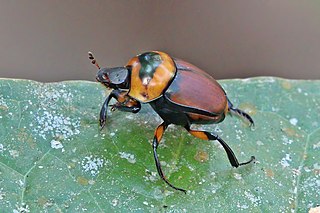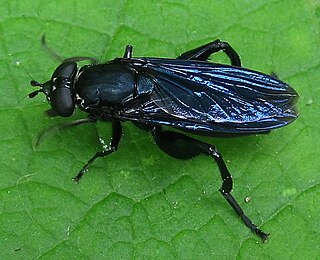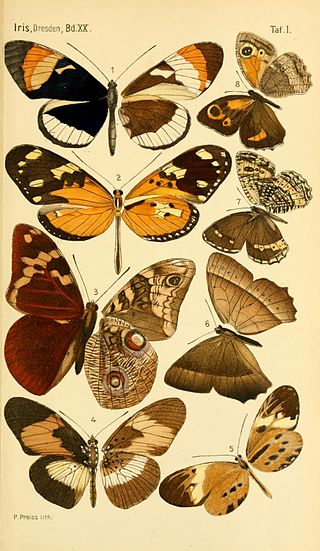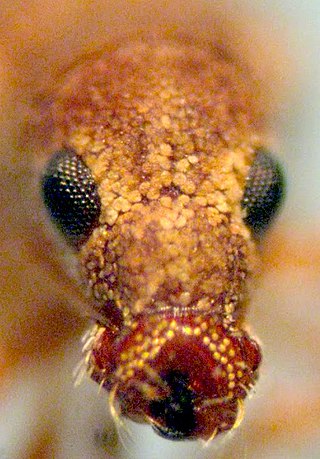
Friedrich Hermann Loew was a German entomologist who specialised in the study of Diptera, an order of insects including flies, mosquitoes, gnats and midges. He described many world species and was the first specialist to work on the Diptera of the United States.
Ferdinand Anton Franz Karsch was a German arachnologist, entomologist and anthropologist. He also wrote on human and animal sexual diversity with his mother's maiden name included as FerdinandKarsch-Haack from around 1905.

Xylota is a Holarctic genus of hoverflies similar in structure to the related genera Chalcosyrphus and Brachypalpoides. As the larvae are saprophytic they're usually found in rotting wood. The adult flies are generally associated with woodland and woodland edges and can often be seen running over the upper sides of leaves. Unlike other syrphids the adults of many species rarely visit flowers preferring instead to gather pollen from leaf surfaces. There are over 100 described species of which 12 can be found in Europe. Seven species have been recorded in Britain. Identification of species has been difficult and identifiction by photographs is risky.

Canthon, the tumblebugs, is a Nearctic-Neotropical genus of Scarabaeidae or scarab beetles in the superfamily Scarabaeoidea.

Chalcosyrphus is a genus of hoverflies in the subfamily Eristalinae. Many species exhibit some degree of mimicry of various sawflies and other hymenopterans and are often brightly coloured or metallic in hue. The adults are similar in structure and behavior to the related genus Xylota but differ in larval morphology. They can be found throughout Europe, Asia, and North America and seem to prefer damper, boggy habitats. The larvae are saproxylic feeders in rotten wood in these habitats.
Julius Moser was a German entomologist who specialised in beetles.

Gustav Weymer (1833–1914) was a German entomologist. He described many new taxa of butterflies from specimens collected by Alphons Stübel in South America.

Empis is a genus of dance fly found in the fly family Empididae.
Max Gaede was a German engineer and entomologist of international fame who described several hundred of new species of Lepidoptera, mainly African Noctuidae.

Oxycera is a genus of flies in the family Stratiomyidae.

Colasposoma is a genus of leaf beetles in the subfamily Eumolpinae. It is known from Africa, Asia and Australia.

The Anypotactini are a Neotropical weevil tribe in the subfamily Entiminae. It includes 81 described species.

Pseudocolaspis is a genus of leaf beetles in the subfamily Eumolpinae. It contains about 80 species, which are found in tropical Africa.

Eumolpini is a tribe of leaf beetles in the subfamily Eumolpinae. It is the largest tribe in the subfamily, with approximately 170 genera found worldwide. Members of the tribe almost always have a longitudinal median groove on the pygidium, which possibly helps to keep the elytra locked at rest. They also generally have a subglabrous body, as well as appendiculate pretarsal claws.
Spintherophyta is a genus of leaf beetles in the subfamily Eumolpinae. Most species in the genus are found in Central and South America, but there are also a few North American species.
Phaeobalia is a genus of flies in the family Empididae.
Wiedemannia is a genus of flies in the family Empididae.
Scione is a genus of flies in the family Tabanidae.











